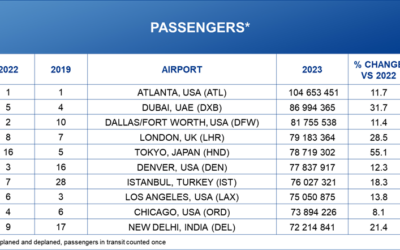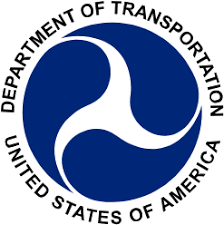A bill that would create an independent, not-for-profit corporation to modernize and provide U.S. air traffic control services was introduced Wednesday, formally opening the debate on the highly controversial plan.
Transportation and Infrastructure Committee Chairman Bill Shuster (R-Pa.) and Aviation Subcommittee Chairman Frank LoBiondo (R-N.J.) introduced the Aviation Innovation, Reform and Reauthorization Act. The legislation would essentially privatize the air traffic control component of aviation in the U.S. while leaving the Federal Aviation Administration to continue the role as the nation’s aviation safety regulator.
Under the bill’s plan, the federally chartered air traffic control corporation would be governed by a board representing the aviation system’s users and the public interest.
Noting that the bill will allow for the continuance and enhancement of safety processes overseen by FAA, Shuster said the ATC reform is needed. “Our system is incredibly inefficient, and it will only get worse as passenger levels grow and as the FAA falls further behind in modernizing the system,” Shuster said in a statement. “Furthermore, the FAA’s overly bureaucratic certification processes are handicapping American companies and causing us to fall behind our competition.”
The bill is highly controversial and the issue does not break on party lines. Several Republican lawmakers have come out against the privatization, while some Democratic lawmakers are supporting the move. Even the airlines, which many say stand to benefit from what they believe will be increased control over the ATC system, are divided, with Delta Air Lines in particular taking a stance against the move.
Delta released a study on Feb. 1 that found that air travelers could be forced to pay 20 to 29 percent higher costs if the U.S. moves to a private air traffic control organization funded through user fees.
“Proponents have claimed that privatization would lead to cost savings for consumers,” the study stated. “But no evidence has yet been produced to show that privatization would reduce costs. In fact, nations that have privatized ATC have seen operational costs increase at a much higher rate than has been seen in the U.S. under the FAA.”
But the trade group Airlines For America supports a reformed air traffic control system, saying the move is “necessary to make flying dependable and efficient.” In a statement, it added that “defenders of the status quo offer nothing but misleading, false allegations.”
“Proponents of reform advocate for a not-for-profit organization that will be overseen by the FAA and governed by a board inclusive of all stakeholders, including employee unions, general aviation and private fliers, and passengers,” Airlines for America said. “That’s the way air traffic services are run in most of the rest of the world. We want to see more air traffic controllers hired. We want to make the system even more safe. And most importantly, we want to make flying better for the traveling public. Members of Congress should want the same thing.”
Among lawmakers, there are contrasting views as well.
In a conference call with the press this week, Representative Elijah Cummings (D-Maryland), who sits on the Transportation and Infrastructure Committee, made the case for retaining FAA control of the ATC system.
“The system that we have now under the current regulations has been a very strong, effective and efficient system,” Cummings reportedly said. “We don’t need to create a governmental entity to oversee air traffic control, and we certainly don’t need to give airlines more power over the aviation system, which is precisely what they would get under the Republicans’ proposal as we know it.”
Senators on both sides of the aisle also voiced concern. “These proposals have two fundamental problems: They break apart the FAA, and they diminish the ability of Congress to oversee the aviation system,” Sens. Thad Cochran (R-Miss.), Barbara Mikulski (D-Md.), Susan Collins (R-Maine) and Jack Reed (D-R.I.) wrote in a letter to the leaders of the Senate committee that handles transportation issues. All four senators are on the Senate Appropriations Committee.
“The United States is a world leader in aviation, with the largest, most complex air transportation in the world,” the senators continued. “We are also a world leader in aviation safety. Commercial aviation fatalities are at historic lows, yet the FAA continues to innovate and improve its approach to safety oversight. It does not make sense to break apart the FAA, an essential part of our success in aviation.”






